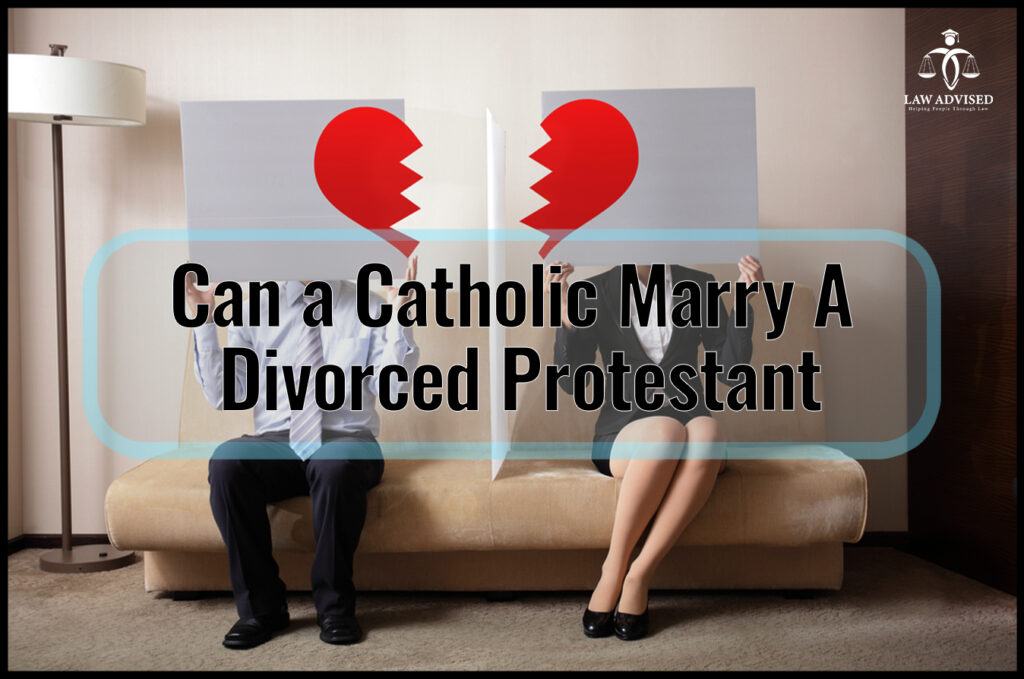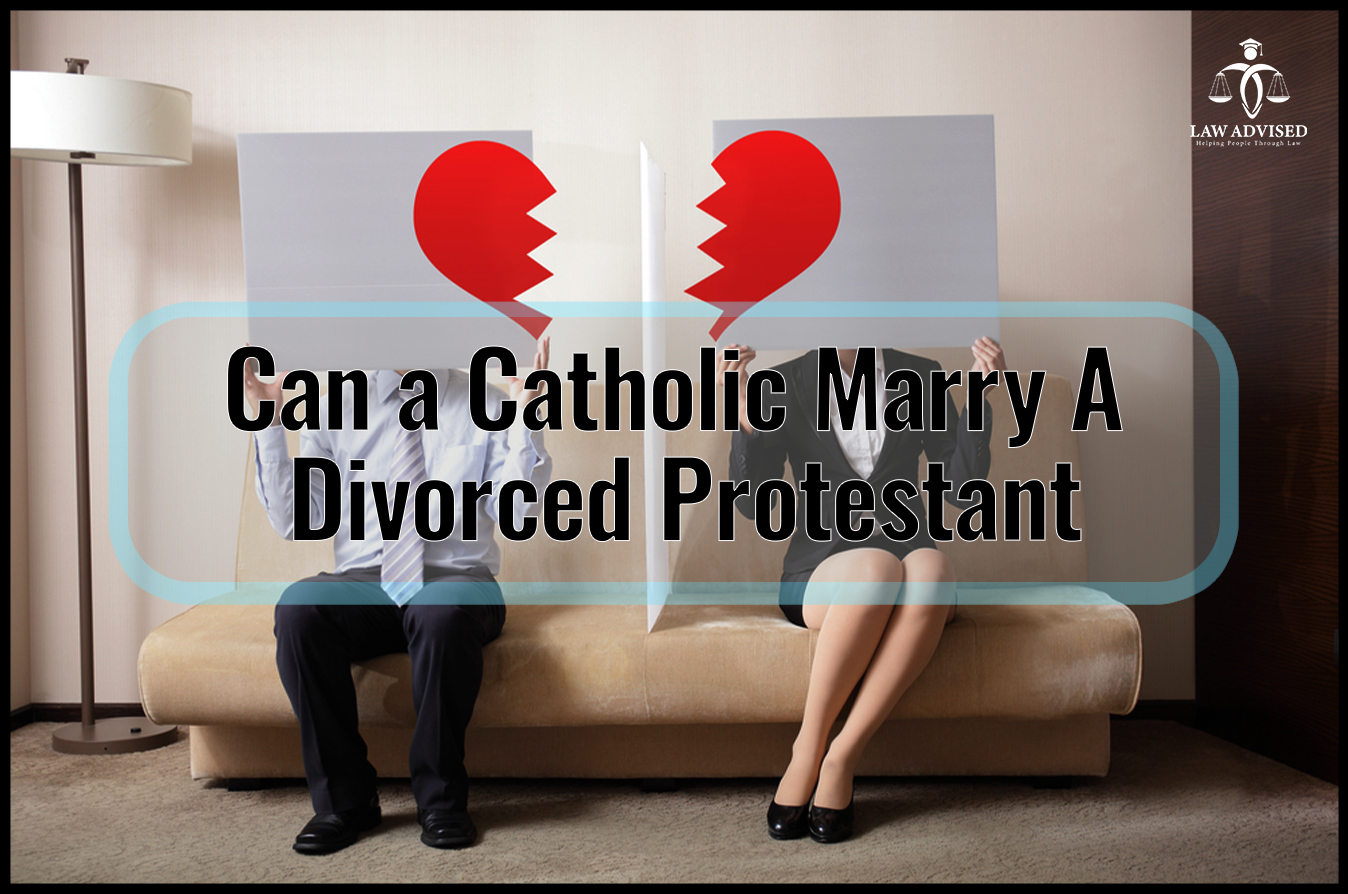Yes, a Catholic can marry a divorced Protestant. However, the Catholic Church has certain guidelines and requirements that need to be met before the marriage can take place.
These guidelines include obtaining an annulment if the Protestant’s previous marriage was considered valid in the eyes of the Catholic Church. It is advised for the couple to seek guidance from their local priest or bishop to ensure that they meet all the requirements before proceeding with the marriage.
Understanding The Catholic Church’s Teachings On Marriage
The Catholic Church places great significance on sacramental marriage. According to its teachings, marriage is a sacred and lifelong covenant between a man and a woman. It is considered a sacrament, a visible sign of the love between Christ and His Church. Divorce, on the other hand, is viewed as a dissolution of a valid marriage. In the eyes of the Church, a divorce does not nullify the sacramental bond established through marriage.
In cases where a Catholic wishes to marry a divorced Protestant, there are certain factors to consider. The Catholic Church recognizes the validity of Protestant marriages, as long as they meet certain conditions. However, if the Protestant spouse has been previously married and obtained a civil divorce, the Catholic individual must obtain an annulment from the Church before seeking to enter into a sacramental marriage.
It is important to understand that the Catholic Church’s teachings on marriage reflect its commitment to upholding the sanctity and permanence of the sacrament. While the process of obtaining an annulment may seem complex, it serves to ensure the spiritual well-being of those seeking to enter into a sacramental marriage within the Church.
Can A Catholic Marry A Divorced Protestant?
The possibility of a Catholic marrying a divorced Protestant depends on several factors. The Catholic Church has a strict stance on marriage, and it views the sacrament as a lifelong commitment. However, there are circumstances where the Church may allow a Catholic to marry a divorced Protestant.
One important factor is the annulment process. In the eyes of the Catholic Church, an annulment declares that a marriage was not valid from the beginning. If an annulment is granted, it essentially states that the prior marriage never existed. This opens up the possibility for a Catholic to marry a divorced person.
It’s important to note that the annulment process can vary and may require a thorough examination by a Church tribunal. Each case is evaluated individually, taking into consideration factors such as the validity of the prior marriage and the reasons for the divorce.
Overall, while the Catholic Church generally discourages divorce and remarriage, it does provide a path for a Catholic to marry a divorced Protestant through the annulment process.
Expert Advice On Navigating Catholic-protestant Marriages
Marriage is a sacred bond that can sometimes face challenges, especially when two individuals come from different religious backgrounds. In the case of a Catholic marrying a divorced Protestant, it is essential to seek guidance from a trusted priest or religious authority. Their experience can provide valuable insight into navigating the complexities of a mixed-faith marriage.
Understanding the challenges faced by mixed-faith couples is crucial. Differences in beliefs and practices can lead to conflicts if not addressed. Open communication and respect should be the foundation of the relationship. Creating a safe space for discussing religious beliefs, values, and traditions can help strengthen the bond between partners.
A Catholic-Protestant marriage requires compromises and understanding from both partners. It is important to find common ground and celebrate shared values, while also respecting individual religious practices. By actively engaging in conversations about faith, couples can build trust and foster a deeper connection.
Ultimately, in the journey of a Catholic-Protestant marriage, seeking guidance from a trusted religious authority and fostering open communication and respect are key to building a strong foundation for the relationship.

Common Misconceptions And Challenges In Catholic-protestant Marriages
There are several misconceptions about the Catholic Church’s teachings on marriage that can create challenges in Catholic-Protestant marriages. One common misconception is that the Catholic Church does not recognize divorce. However, the Church acknowledges that civil divorce may be necessary in certain situations. The Church also offers the annulment process to validate a marriage as null and void.
A potential conflict that arises from these different faith traditions and practices is the disparity in beliefs about the sacraments. The Catholic Church recognizes seven sacraments, including the Sacrament of Matrimony, while Protestant denominations may have different views on sacraments. Open communication, understanding, and mutual respect are crucial in navigating these differences.
Raising children in a mixed-faith household can present challenges. Parents must find a balance between their respective traditions and values, while also encouraging open dialogue and providing a foundation of love and acceptance. It is important to involve children in both faith communities and expose them to different religious practices, allowing them to make informed decisions as they grow.
Interfaith Dialogue And Unity In Catholic-protestant Marriages
Interfaith dialogue and mutual understanding play a crucial role in strengthening the bonds of love and faith in a Catholic-Protestant marriage. Both partners need to have open and respectful conversations about their respective beliefs, traditions, and values. By acknowledging and embracing their differences, couples can build unity through shared values and common goals.
This dialogue can involve discussing theological perspectives, religious practices, and the role of faith in their daily lives. It can also include exploring ways to incorporate both Catholic and Protestant traditions into their wedding ceremony and future family life. This mutual understanding allows the couple to navigate potential challenges and conflicts that may arise due to their different religious backgrounds.
Through interfaith dialogue, a Catholic-Protestant couple can forge a path that respects both partners’ religious identities and fosters a supportive and inclusive environment. By approaching their marriage with an open heart and a willingness to learn from one another, they can create a strong foundation rooted in love, understanding, and harmony.
Case Studies: Successful Catholic-protestant Marriages
Can a Catholic Marry a Divorced Protestant
Real-life examples of Catholic-Protestant couples who have navigated their differences:
| Couple | Religion | Key Lessons |
|---|---|---|
| John and Sarah | Catholic and Protestant | Communication and mutual respect are crucial. They actively listen to each other’s beliefs and seek common ground in their shared values. |
| Michael and Emma | Catholic and Protestant | Establishing an open dialogue with their families was vital. They had open conversations about their religious differences and gradually gained support. |
| David and Lisa | Catholic and Protestant | They agreed to attend each other’s religious services occasionally, showing support and interest in their partner’s faith. |
These examples showcase how Catholic-Protestant couples have successfully maintained both their faiths in harmony. Insights from these couples reveal the importance of communication, mutual respect, and open dialogue with families. They emphasize the significance of finding common ground and showing support for each other’s beliefs.
Successful interfaith marriages teach us valuable lessons. It’s possible to build a strong foundation by embracing differences and seeking understanding. These couples encourage compromise without compromising core values.
Frequently Asked Questions For Can A Catholic Marry A Divorced Protestant
Can A Catholic Marry A Divorced Protestant?
Yes, under certain circumstances, a Catholic can marry a divorced Protestant with the permission of the Catholic Church and fulfillment of specific requirements.
Conclusion
Ultimately, the decision of whether a Catholic can marry a divorced Protestant depends on the specific circumstances and the stance of the Catholic Church. While there may be challenges to overcome, such as obtaining an annulment or receiving permission from the Church, a Catholic can marry a divorced Protestant.
It is important to seek guidance from a priest and engage in open communication with your partner to navigate this complex situation successfully.
Ismail Hossain is the founder of Law Advised. He is an Divorce, Separation, marriage lawyer. Follow him.





Leave a Reply